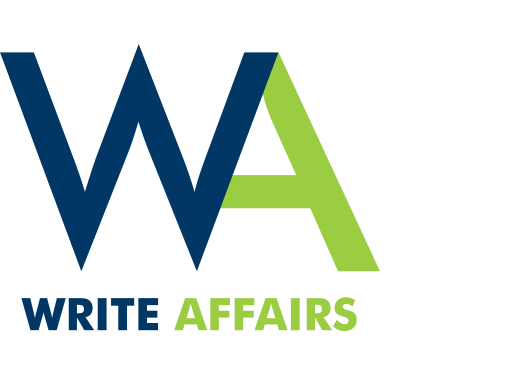Role of PEF
- Home
- Blog

By Eniola Olakunri
“Do your little bit of good where you are; it’s those little bits of good put together that overwhelm the world” – Archbishop Desmond Tutu (1984 Nobel Peace Prize Winner)
Finance, Budget and National Planning Minister, Zainab Ahmed’s recent pronouncements on the ascending inflation in the country is a tacit admission that the cost of living index in Nigeria is on the upswing.
From Lagos to Potiskum, Abuja to Enugu, and Port Harcourt to Makurdi, the story is the same. People are groaning under the yoke of weighty price increases on almost all essential commodities. The prices of yam, rice, onion, beans, tomato and all other food items have gone up astronomically (some as high as 300 percent), and many are finding the development unbearable.
Ahmed had, at a virtual meeting with financial experts and other stakeholders, identified spiralling transportation costs as the main driver of the bothersome inflationary trend in the Nigerian economy. The Minister, who finds the unfolding economic situation unsettling, affirmed that the 2020 Finance Bill seeks, among other provisions, to explore ways of cushioning the effects of transportation costs on the citizenry.
Latest economic data from the National Bureau of Statistics (NBS) indicates that commuters have been experiencing at least a 7.92% monthly increase in bus fares and some 63.88% year-on-year, as of September 2020.
There is little doubt that the steady increase in the pump price of premium motor spirit (PMS) has driven up commuter fares. When aligned with the amount charged for moving goods across the country, the Minister’s point becomes evident. “…if you look at the rate which our inflation is going and disaggregate the components, you will find that inflation is largely driven by transport cost. So, the essence is to reduce transportation cost so that businesses would have ease and pass benefits to eventual consumers,” she said.
Nairametrics, quoting the Consumer Price Index (CPI) report released by the NBS, stated that “Nigeria’s inflation rate rose to 13.71% (year-on-year) in September 2020, indicating 0.49% higher than 13.22% recorded in August 2020.” The report also noted that “Nigeria has endured a persistent increase in inflation rate, growing from 12.13% in January to 13.71% in September…the highest recorded in 30 months.”
In June this year, I wrote extensively on the continued relevance of Petroleum Equalisation (Management) Board (PEF) and its role in managing daily living costs by ensuring petrol supply at a uniform price. At that time, the nation was on lockdown due to the Covid-19 pandemic and PMS was selling at ₦123.50 per litre. Since then, the price per litre of this vital product has been steadily increasing, driving inflation.
With crude oil prices rallying and Brent Crude selling at over $50 per barrel, the landing costs of refined petrol have gone up, impacting the many small businesses dependent on generators due to inconsistent electricity supply from the national grid.
PEF, by law, maintains uniform petrol pricing nationwide. Established in 1975, it covers marketers’ transport costs to ensure price stability across the country. This reimbursable system has reduced product diversion by marketers, minimizing the risk of petrol shortages.
Petrol is currently priced at ₦167 per litre at most Lagos filling stations. Due to refinery shutdowns and the limited pipeline network, trucking remains the primary means of petrol distribution across Nigeria.
Without PEF’s intervention, inflation could be even worse as PEF cushions transport costs, ensuring steady supply across Nigeria and preventing even higher business costs that would put more Nigerians out of work.
Globally, the economic impact of Covid-19 has been devastating, especially in Europe and the Americas. While Covid cases in Nigeria have not reached the same levels, the Nigerian economy—heavily reliant on crude oil—has been hit hard. The black gold lost its value in April, selling at $18 per barrel compared to an average of $72 in 2018. The economy contracted by 6.1% in the second quarter of this year, underscoring the impact on disposable income and the potential for large-scale dissent.
This economic climate further emphasizes the importance of PEF’s role in managing petrol distribution. Rather than ceasing operations, PEF should be strengthened. Currently self-funded, PEF sustains operations through a revenue pool from product marketing companies.
PEF is exploring partnerships with the Nigeria Railway Corporation (NRC) to transport petrol and LPG by rail, aiming to further lower distribution costs. The 2020 Finance Bill intends to support road transport through duty reductions, while PEF continues stabilizing the downstream sector by ensuring petrol supply and helping curb inflation.
In the words of George W. Bush, former President of the United States, “You’ve just got to do what you think is right, and just make decisions on noble causes. And a noble cause is peace and security and freedom.”
Eniola Olakunri, Director of Oats Global Energy and Public Sector Analyst, writes from Abuja.
About Us
Write Affairs was created in June 2024 as an extension of Quintessential Strategies Limited (QSL) to meet the growing demand for expert writing services.
